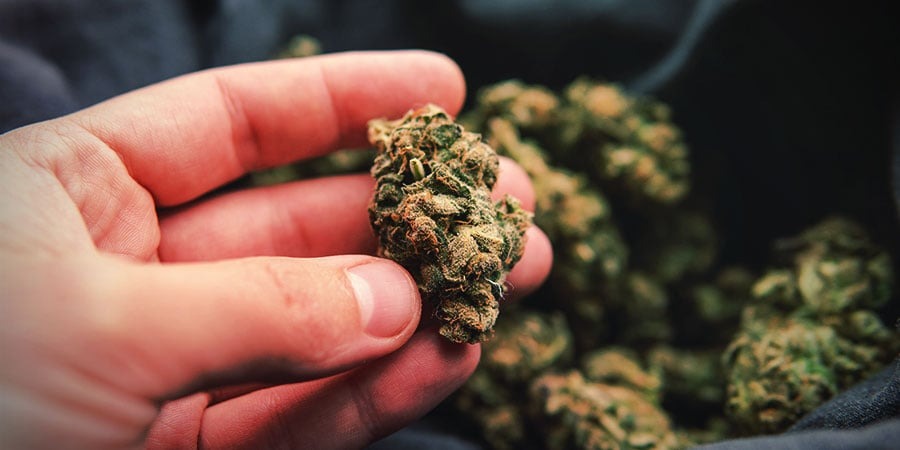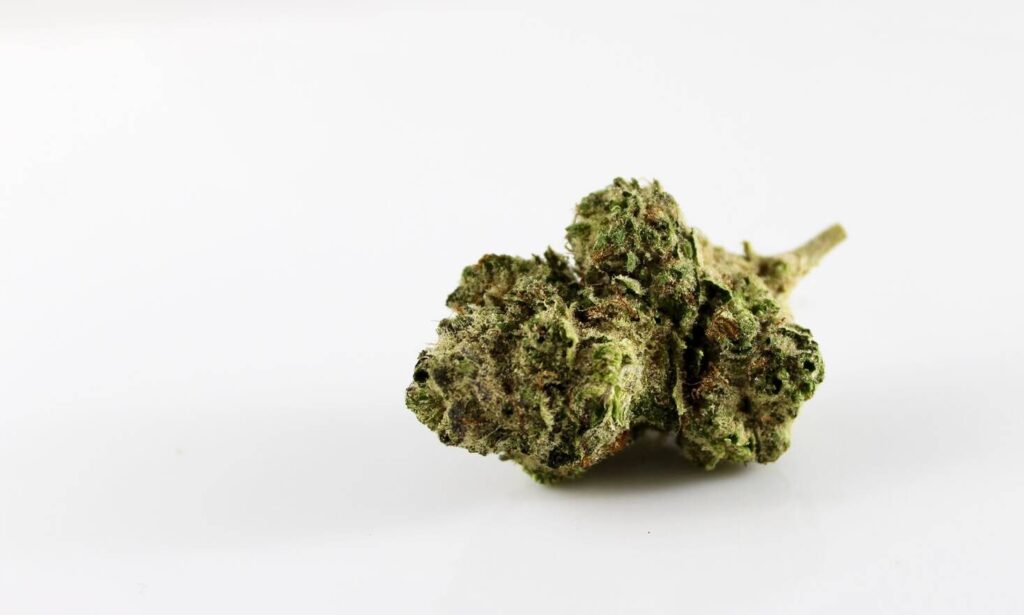Cannabis enthusiasts and cultivators alike often hear the term “bud density” when discussing the quality of cannabis. Bud density plays a crucial role in how cannabis is perceived, consumed, and enjoyed. From the visual appeal to the overall experience, bud density impacts not just the aesthetics but also the potency, flavor, and burn rate of cannabis. But what exactly does bud density mean, and why should consumers care about it? In this blog, we will delve into the concept of bud density, its effects on cannabis quality, and why it’s a key factor to consider when purchasing or growing cannabis.
What Is Bud Density?
Before diving into its significance, it’s important to understand what “bud density” actually refers to. Bud density describes the compactness or firmness of the cannabis buds. Dense buds are tightly packed with trichomes, terpenes, and cannabinoids, while airy or fluffy buds are less compact and tend to feel lighter. The density of the bud directly influences its visual appeal, texture, and how it burns. While it may seem like a superficial trait, bud density actually reflects the health and growing conditions of the cannabis plant.

How Is Bud Density Measured?
Bud density is generally measured by how tight or loose the structure of the buds is. Dense buds are heavy for their size, often looking tightly packed, with very little space between the calyxes, pistils, and leaves. On the other hand, less dense buds might feel lighter, fluffier, and can be broken apart more easily. Dense cannabis buds are often associated with higher-quality cannabis, but bud density alone is not always an accurate indicator of quality.
Why Bud Density Matters for Cannabis Quality
The density of cannabis buds affects several factors that contribute to the overall quality and experience of the plant. Let’s explore how bud density relates to the key aspects of cannabis.
1. Potency and Cannabinoid Content
One of the most important reasons why bud density matters is its potential relationship with cannabinoid potency. Dense buds generally have a higher concentration of trichomes, the resin glands that house THC, CBD, and other cannabinoids. Since these trichomes are more tightly packed in dense buds, they are less likely to be damaged during handling, ensuring that the full spectrum of cannabinoids remains intact.
Thicker buds may also indicate that the plant received optimal growing conditions, such as the right amount of light, nutrients, and care. This can lead to higher THC content, which is why dense buds are often seen as a sign of potent cannabis. However, it’s important to remember that potency isn’t only determined by density—other factors, such as genetics and cultivation techniques, also play an essential role.
2. Flavor and Aroma
Terpenes, the compounds responsible for cannabis’ distinctive aromas and flavors, are another critical factor influenced by bud density. Dense buds usually have a higher concentration of terpenes, as the tight structure of the bud helps to preserve these volatile compounds. When cannabis buds are stored properly, the flavor and aroma tend to be more potent, and the dense nature of the bud can help lock in that fresh, pungent scent.
On the other hand, airy buds, which may have less trichome density, tend to lose their terpenes more easily, resulting in a less flavorful or aromatic smoking or vaping experience. So, for those who are particular about the taste and smell of their cannabis, dense buds are usually the more desirable choice.
3. Burn Quality and Smoking Experience
Bud density also influences how the cannabis burns when smoked. Dense buds tend to burn more slowly and evenly, providing a smoother and more enjoyable experience for the user. The dense nature of the bud allows it to hold moisture longer, ensuring that it burns slowly and doesn’t dry out too quickly.
Fluffy buds, in contrast, can burn faster and less evenly, which can lead to an unpleasant smoking experience. Additionally, less dense buds may have more air pockets, which can result in a harsher burn and less control over the rate at which the cannabis is consumed.
4. Shelf Life and Preservation
The compact structure of dense cannabis buds helps preserve the trichomes and cannabinoids for a longer period of time. Because they are tightly packed, dense buds are less likely to be damaged during handling and shipping, which can help maintain their quality over time. On the other hand, airy or loosely packed buds are more prone to damage, such as trichome loss or the growth of mold, especially if they are not stored properly.
Proper storage is vital to maintaining the freshness of cannabis, and dense buds are often better suited to long-term storage as they are more resilient to environmental changes. This makes dense buds the preferred choice for those who want to enjoy their cannabis over extended periods.
Factors That Influence Bud Density
Several factors play a role in determining whether cannabis buds will be dense or airy. Cultivators must consider these factors to achieve optimal bud density and, consequently, higher-quality cannabis.
1. Genetics
The genetics of the cannabis plant play a significant role in determining the bud structure. Some strains naturally produce dense buds, while others are more airy. Indica strains, for instance, tend to have denser buds compared to sativa strains, although there are always exceptions depending on the specific cultivar.
Hybrid strains can inherit traits from both their indica and sativa parentage, resulting in a range of bud densities. Growers must consider these genetic characteristics when selecting cannabis strains for cultivation to ensure the desired bud density.
2. Growing Conditions
The environmental factors during cultivation significantly influence the density of cannabis buds. Key factors include:
- Light: Cannabis plants require an adequate amount of light for photosynthesis. Insufficient light during the flowering stage can result in less dense buds, while intense light helps produce thicker, denser buds.
- Nutrients: Proper feeding, especially with a balanced nutrient regimen, promotes healthy bud growth. Overfeeding or underfeeding can lead to underdeveloped or airy buds.
- Temperature and Humidity: The ideal temperature and humidity levels during cultivation help prevent stress on the plant and ensure that it produces dense, resin-rich buds. Fluctuations in temperature or excessive humidity can lead to fluffy buds and potential mold growth.
3. Harvesting Time
Timing the harvest is crucial for achieving optimal bud density. Harvesting too early can result in buds that are light and underdeveloped, while waiting too long may cause the trichomes to degrade, resulting in lower potency. The timing of the harvest affects the density and potency of the final buds.
How to Identify Dense Buds
When purchasing cannabis, it’s essential to know how to identify dense buds. Look for the following characteristics:
- Heavy for their size: Dense buds should feel heavier than their appearance might suggest.
- Tight structure: The buds should appear tightly packed with little space between the trichomes and leaves.
- Resin-covered surface: High-quality dense buds are often covered in sticky, resinous trichomes that indicate high cannabinoid content.
Conclusion: Is Bud Density the Only Indicator of Quality?
While bud density plays a significant role in the overall quality of cannabis, it should not be the only factor considered when assessing cannabis. Other aspects, such as cannabinoid profile, terpene content, cultivation methods, and curing process, also contribute to the final product’s quality.
Nonetheless, dense buds generally signal a well-grown, high-potency strain with rich flavor, smooth burn, and lasting freshness. So, whether you’re a consumer looking to elevate your cannabis experience or a cultivator aiming for premium yields, understanding and optimizing bud density is an essential part of the equation.

